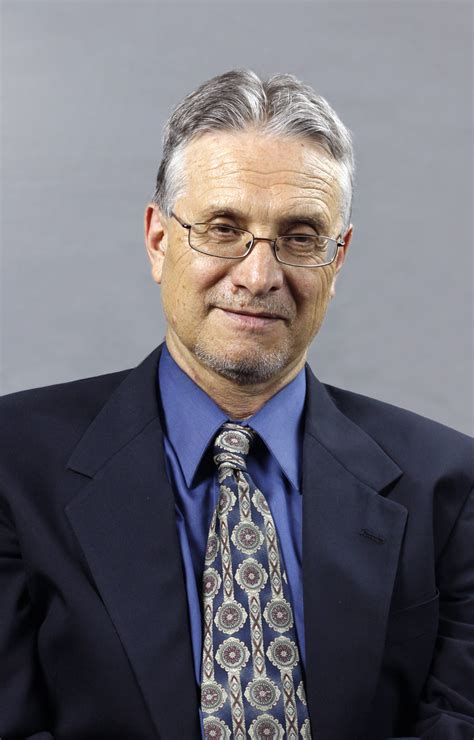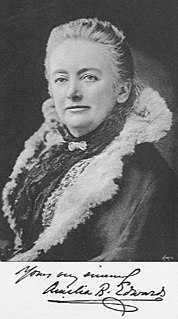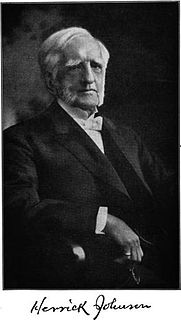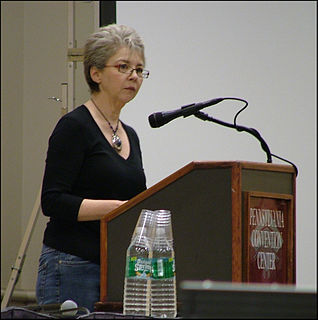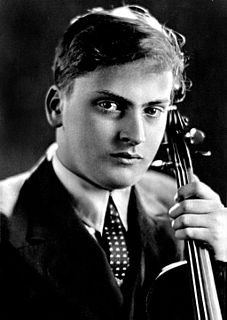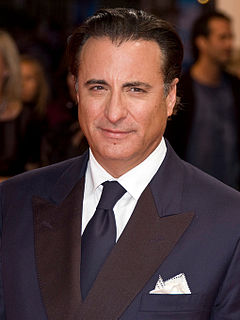A Quote by Lloyd Billingsley
The true fanatic is a theocrat, someone who sees himself as acting on behalf of some super-personal force: the Race, the Party, History, the Proletariat, the Poor, and so on. These absolve him from evil, hence he may safely do anything in their service.
Related Quotes
This is the gist of all worship: to be pure and to do good to others. He who sees Shiva in the poor, in the weak, and in the diseased, really worships Shiva. And if he sees Shiva only in the image, his worship is but preliminary. He who has served and helped one poor man seeing Shiva in him, without thinking of his caste or creed or race or anything, with him Shiva is more pleased than with the man who sees Him only in temples
No man could bring himself to reveal his true character, and, above all, his true limitations as a citizen and a Christian, his true meannesses, his true imbecilities, to his friends, or even to his wife. Honest autobiography is therefore a contradiction in terms: the moment a man considers himself, even in petto, he tries to gild and fresco himself. Thus a man's wife, however realistic her view of him, always flatters him in the end, for the worst she sees in him is appreciably better, by the time she sees it, than what is actually there.
It may be said of some very old places, as of some very old books, that they are destined to be forever new. The nearer we approach them, the more remote they seem: the more we study them, the more we have yet to learn. Time augments rather than diminishes their everlasting novelty; and to our descendants of a thousand years hence it may safely be predicted that they will be even more fascinating than to ourselves. This is true of many ancient lands, but of no place is it. so true as of Egypt.
It's quite possible we may actually be looking at some kind of super-sanity here. A brilliant new modification of human perception, more suited to urban life at the end of the twentieth century...He creates himself each day. He sees himself as the lord of misrule and the world as a theatre of the absurd.
I have learned a new form of service from the wars of Frederick, king of Prussia. It is not necessary to approach the enemy in order to attack him. In fleeing from him, it is possible to circumvent him as he advances and fall on him from the rear and force him to surrender. What is needed is not to strike straight at evil but to withdraw to the sources of divine power, and from there to circle around evil, bend it and transform it into its opposite.
People may like what third-party candidates say, because often they are the only ones saying anything, but they usually won't vote for someone who doesn't have a chance. Since third-party candidates are not in the news, they are considered to be not really in the race; and since they are not in the race, this justifies treating them as if they are not news.
Here is Christianity. Whence came it? It is a force in the world, a prodigious force. It has revolutionized society. It has lifted man out of himself. It has changed the face of the world. There it lies, imbedded in more than eighteen centuries of human history; and history of no mean sort, the best record of the race.
Maybe that's the way to tell the dangerous men from the good ones. A dreamer of the day is dangerous when he believes that others are less: less than their own best selves and certainly less than he is. They exist to follow and flatter him, and to serve his purposes. A true prophet, I suppose, is like a good parent. A true prophet sees others, not himself. He helps them define their own half-formed dreams, and puts himself at their service. He is not diminished as they become more. He offers courage in one hand and generosity in the other.
There are three levels of service. The highest level is that of one who performs good deeds the whole day and yet feels that he has not acheived anything. The second level is someone who, though he has not done anything, knows that he has not corrected anything in this world. This is good, and there is hope for him that he might correct his ways. However, someone who is righteous in his own eyes deceived himself all his life; his good deeds will be lost.
